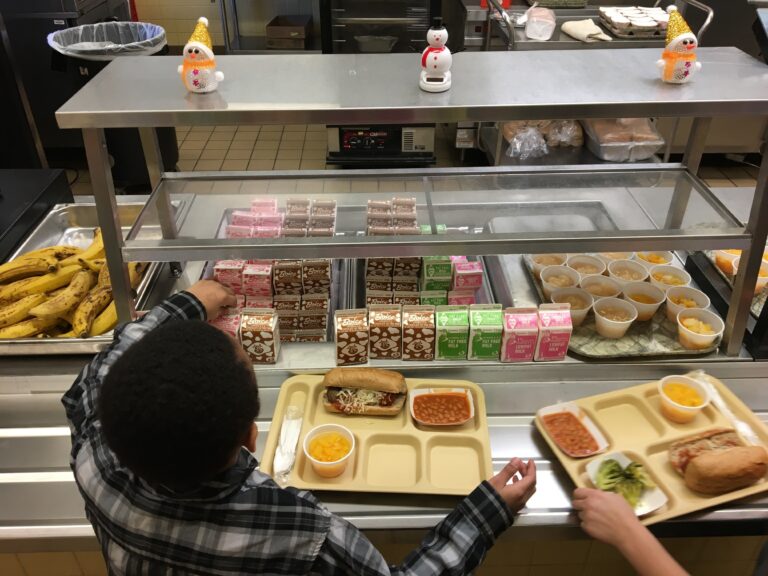CHICAGO — The Center for Childhood Resilience at the Ann & Robert H. Lurie Children’s Hospital of Chicago is partnering with the Illinois State Board of Education to help equip schools to address the mental health needs of students and staff.
The new initiative, known as Resilience Education to Advance Community Healing, or REACH, is prompted by the recognition that the COVID-19 pandemic has taken a toll on the mental health of children and teens.
Fifty schools across Illinois will work with staff at Lurie Children’s Center for Childhood Resilience to assemble REACH teams that will conduct a needs assessment and develop action plans aimed at supporting students’ social-emotional learning and mental wellbeing.
In addition to the REACH teams, the Center for Childhood Resilience is providing all Illinois educators with virtual training on the impact of trauma on children and related topics.
Since the virtual training program launched late last year, more than 5,000 teachers have registered on the site and about half of them have completed the first course on child trauma, says Colleen Cicchetti, executive director of Lurie’s Center for Childhood Resilience.
The training is aimed at equipping teachers to promote mental wellness in the classrooms and in their interactions with students.
“We believe if we start with skill-building around social-emotional learning, we’re then able to have a whole bunch of kids equipped with what they need,” Cicchetti says. “And other kids start to emerge who need more. So then we develop systems for connecting those kids… to the right services.”
Teachers who understand the effects of trauma on children will be better-equipped to identify those students who need more individual attention and support, she says, which may require a connection to mental health providers outside the school. And the more schools are connected with providers in their area, the smoother these transitions can be.
The REACH teams will be formed at 50 Illinois schools that meet criteria as “Comprehensive and Targeted” and receive federal 21st Century Community Learning Center grants. Lurie Children’s staff will support those teams — which are comprised of teachers, administrators, social workers and 21st Century Community Learning Centers project personnel and parent mentors — in identifying needs and finding community organizations they can partner with to meet them.
“It’s really a comprehensive mental health model that says: We all need to be educated to support kids and we all need to be able to interact, know each other’s systems, speak the same language,” Cicchetti says, “so that we can really leverage the resources that do exist in communities to meet the needs of kids and families.”
For about 15 years, Lurie Children’s has been supporting Chicago Public Schools in developing community partnerships to increase mental health supports for students; those efforts are now being expanded to more schools across the state.
Catherine Whitfield, assistant principal at Sumner Math and Science Community Academy on Chicago’s West Side, says the partnership with Lurie Children’s has helped her school develop a strategic approach to bringing in community partners to provide mentorship and academic support for students beyond the classroom — in addition to a strategy for meeting students’ mental and behavioral health needs.
“They’ve also pushed the envelope on… developing trauma-responsive systems within schools,” says Whitfield, who is also a licensed clinical social worker.
That push has come in the form of professional development for teachers, aimed at helping them understand that when a child has experienced trauma it can manifest in disruptive behaviors or disengaging from school.
“No kid comes to school to just not be successful,” Whitfield says. “Something is happening that is impeding their ability to be as productive as we need them to be.”
Over the past year, many of the students in Whitfield’s elementary school have experienced the stress of both a pandemic and the country’s racial reckoning. Whitfield explains to her staff that students carry invisible backpacks from that trauma that weigh them down.
“I had to spend some time with our teachers, saying, ‘I’m not asking you to be the clinician. I’m not asking you to take that on. But just in providing space for children to process and talk and connect, that’s how we’re honestly going to be able to get them a little bit more ready to engage in coursework.’”
Lilian Sackett, who teaches English as a second language at Hernandez Middle School in Chicago, participated in the virtual training on childhood trauma provided by Lurie Children’s and says it has helped her feel more equipped to support her students.
“They mentioned a bad grade is never about a lazy kid,” Sackett told NPR. If a child is struggling academically, they may be dealing with really tough circumstances at home. Sackett learned that teachers can help by creating a supportive environment that fosters resilience.
At the end of the day, the expansion of this partnership with Lurie Children’s hospital is about helping children be healthy so that they’re able to learn, says Peoria Regional Superintendent Beth Crider, whose office is administering the program.
“We have a deep interest in getting this training in the hands of all teachers,” she says.
The two-year partnership with Illinois’ schools launched late last year and is funded with $800,000 from Illinois’ federal 21st Century Community Learning Centers funding.
Christine Herman is a reporter for Illinois Newsroom. Follow her on Twitter: @CTHerman

